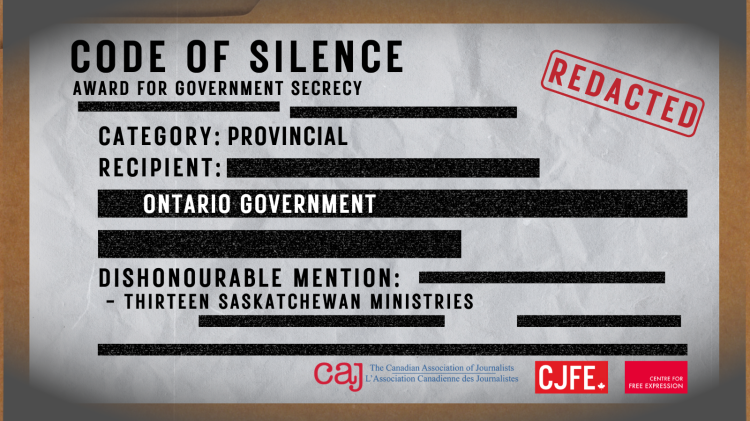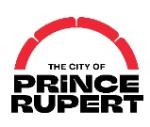
Doug Ford's Ontario government has been selected as the 2024 recipient of the provincial Code of Silence Award for Outstanding Achievement in Government Secrecy for its continued failure to prevent senior employees from using their personal email accounts to also conduct public business.
In Nov. 2024, the Toronto Star reported that a senior Ford government staffer implicated in Ontario's Greenbelt scandal refused to hand over emails that may have been sent from a personal email account to other government staffers and lobbyists interested in developing the protected land.
This year's Code of Silence jury found this violation of Ontario's Freedom of Information laws was particularly egregious in light of the fact that Bonnie Lysyk, Ontario's Auditor General, stipulated in an August 2023 report that using non-governmental resources to conduct official government business was unacceptable.
The staffer at the centre of the controversy resigned from his position after the Auditor General's report found he did not abide by the best practices provided to bureaucrats.
"Communication between lobbyists and political staff using their personal email accounts also creates the perception of preferential access and treatment, and thereby an unfair advantage to those receiving unauthorized confidential information from political staff," Lysyk wrote in her report.
Brent Jolly, president of the Canadian Association of Journalists (CAJ), said safeguarding information through freedom of information legislation is vital to ensuring the integrity of government decisions and transparent public policy making.
"Politicians and those around them will always find creative loopholes to conveniently keep information about decision-making hidden from public scrutiny," Jolly said. "Whether it's the premier calling constituents on his personal cell phone or staffers actively circumventing FOI laws, our system is in dire need of modernization to ensure that all vital government decision-making processes are transparently - and proactively - exposed for full public view."
This year's Code of Silence jury also agreed to bestow a dishonourable mention on thirteen Saskatchewan ministries who disregarded a decision by the province's Information Commissioner to have records released in a machine-readable format to The Globe and Mail as part of its Secret Canada project.
The Saskatchewan government has said it provided all the records requested, subject to exemptions and was "not considering changes to the province's access to information legislation."
"This is a symptom of a much wider disease that has actively spread across many public institutions in Saskatchewan," Jolly said. "Refusing to release information in a simple spreadsheet format, particularly when it is widely available, demonstrates a degree of childish petulance that undermines the integrity of the provincial government's commitment to the public's right to know."
The Code of Silence Awards are presented annually by the CAJ, the Centre for Free Expression at Toronto Metropolitan University (CFE), and the Canadian Journalists for Free Expression (CJFE). The awards call public attention to government or publicly funded agencies that work hard to hide information to which the public has a right to under access to information legislation.
Last year, Nova Scotia Premier Tim Houston was recognized as the provincial Code of Silence winner for his office's punting of promises to empower the province's information and privacy commissioner.
The winner of the 2024 Code of Silence Award in the municipal category will be announced on May 14.






















